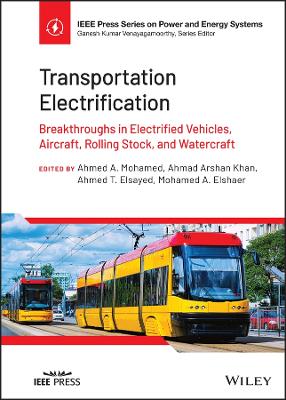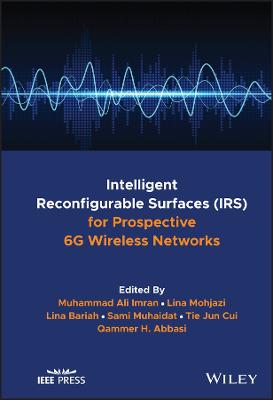Hybrid Excited Synchronous Machines
 portes grátis
portes grátis
Hybrid Excited Synchronous Machines
Topologies, Design and Analysis
Amara, Yacine; Ben Ahmed, Hamid; Gabsi, Mohamed
ISTE Ltd and John Wiley & Sons Inc
01/2023
240
Dura
Inglês
9781786306852
15 a 20 dias
447
Introduction ix
Chapter 1 Hybrid Excited Synchronous Machines: Principles and Structures 1
1.1 Introduction 1
1.2 Interest in hybrid excitation 3
1.2.1 Motoring mode operation 4
1.2.2 Generation mode operation 10
1.3 Hybrid excited structures 12
1.3.1 Classification criteria 13
1.3.2 Structures and classification 19
1.4 Conclusions and perspectives 28
Chapter 2 Control of Hybrid Excited Synchronous Machines 31
2.1 Introduction 31
2.2 Modeling of hybrid excited synchronous machines 32
2.2.1 The nature of the equations 35
2.2.2 Control modes 39
2.3 Torque characteristics and basic control laws 41
2.3.1 Torque characteristics as a function of I and ? 42
2.3.2 Torque characteristics as a function of V and ? 44
2.3.3 Notion of stability for an open loop and the consequences of closed-loop operations 45
2.3.4 Fundamental control laws 51
2.3.5 Temporary overloaded motor operation 56
2.4 Setting the speed of HESMs (maximal characteristics/envelopes) 58
2.4.1 Low-speed operations 59
2.4.2 Operation at high speeds/the notion of flux weakening 72
2.5 Operations on the entire "torque/speed" plane 111
2.5.1 Efficiency optimization algorithms on the entire "torque/speed" plane 113
2.5.2 Normalized model with losses and the calculation of V n max 118
2.5.3 Machines with non-salient poles (? = 1) 121
2.5.4 Machines with salient poles (? ? 1) 125
2.5.5 Validity of the tools developed and the contribution towards hybrid excitation 131
2.6 Conclusions and perspectives 148
Chapter 3 Experimental Studies of Hybrid Excited Synchronous Machines 153
3.1 Introduction 153
3.2 Machine 1 154
3.2.1 Structure and operating principles 155
3.2.2 Construction 159
3.2.3 Experimental study 162
3.3 Machine 2 170
3.3.1 Structure and operating principle 172
3.3.2 Construction 179
3.3.3 Experimental study 186
3.4 Conclusions and perspectives 194
Conclusion 197
References 199
Index 211
Introduction ix
Chapter 1 Hybrid Excited Synchronous Machines: Principles and Structures 1
1.1 Introduction 1
1.2 Interest in hybrid excitation 3
1.2.1 Motoring mode operation 4
1.2.2 Generation mode operation 10
1.3 Hybrid excited structures 12
1.3.1 Classification criteria 13
1.3.2 Structures and classification 19
1.4 Conclusions and perspectives 28
Chapter 2 Control of Hybrid Excited Synchronous Machines 31
2.1 Introduction 31
2.2 Modeling of hybrid excited synchronous machines 32
2.2.1 The nature of the equations 35
2.2.2 Control modes 39
2.3 Torque characteristics and basic control laws 41
2.3.1 Torque characteristics as a function of I and ? 42
2.3.2 Torque characteristics as a function of V and ? 44
2.3.3 Notion of stability for an open loop and the consequences of closed-loop operations 45
2.3.4 Fundamental control laws 51
2.3.5 Temporary overloaded motor operation 56
2.4 Setting the speed of HESMs (maximal characteristics/envelopes) 58
2.4.1 Low-speed operations 59
2.4.2 Operation at high speeds/the notion of flux weakening 72
2.5 Operations on the entire "torque/speed" plane 111
2.5.1 Efficiency optimization algorithms on the entire "torque/speed" plane 113
2.5.2 Normalized model with losses and the calculation of V n max 118
2.5.3 Machines with non-salient poles (? = 1) 121
2.5.4 Machines with salient poles (? ? 1) 125
2.5.5 Validity of the tools developed and the contribution towards hybrid excitation 131
2.6 Conclusions and perspectives 148
Chapter 3 Experimental Studies of Hybrid Excited Synchronous Machines 153
3.1 Introduction 153
3.2 Machine 1 154
3.2.1 Structure and operating principles 155
3.2.2 Construction 159
3.2.3 Experimental study 162
3.3 Machine 2 170
3.3.1 Structure and operating principle 172
3.3.2 Construction 179
3.3.3 Experimental study 186
3.4 Conclusions and perspectives 194
Conclusion 197
References 199
Index 211







